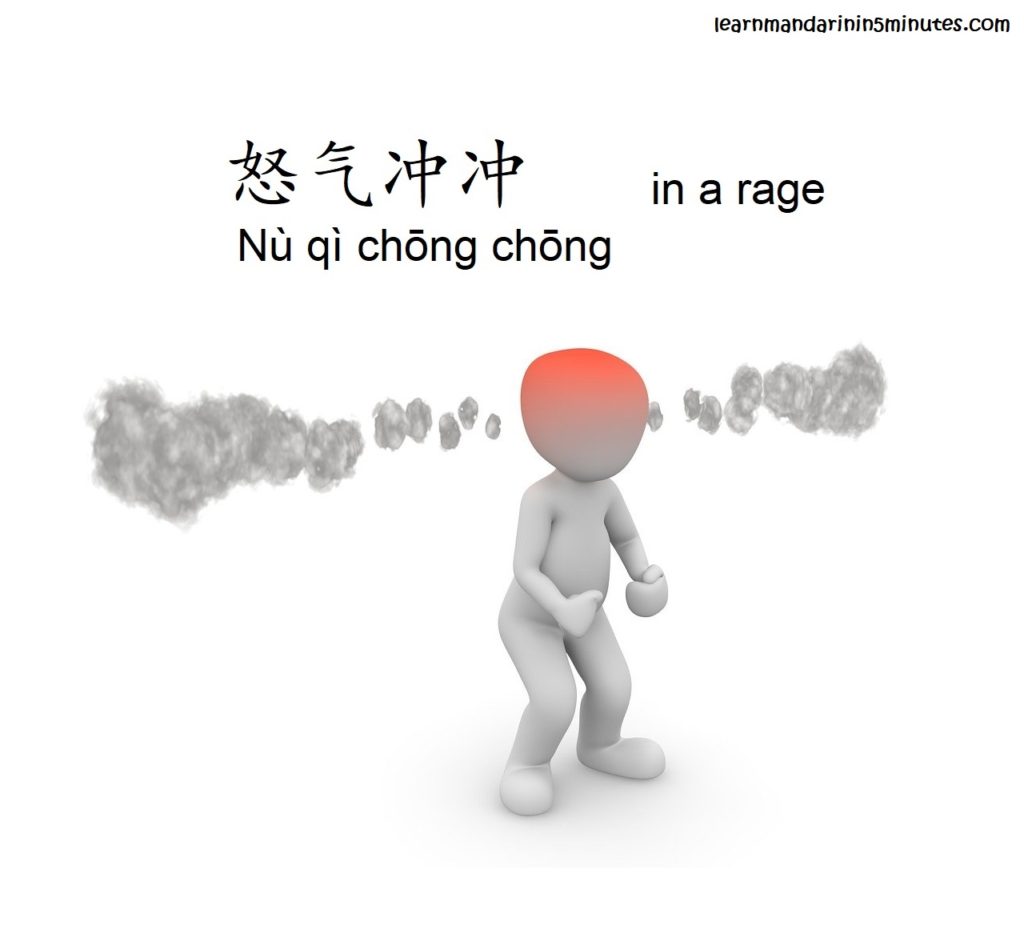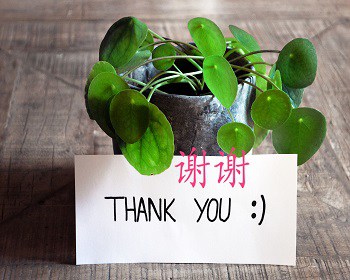We covered 10 commonly use Chinese idioms in our last post. Check the post out if you have not read it yet. We have selected another 10 common Chinese idioms you may have used or heard before.
Do other countries have Idioms or Chengyu?
Korea and Japan have their own Chengyu as well. In Japan, Idioms are called Yojijukugo [四字熟語], whereas in Korea, it is called sajaseong-eo [四字成語].
Useful Chinese Idioms or Chengyu
顺其自然 shùn qí zì rán
The Chinese to English translation for this Chinese idiom is “to let nature takes its course” or “to go with the flow”. Nature is 自然 in Chineseand顺 means to follow and not to go against it.
Example sentences of 顺其自然
爱情不能强求,顺其自然吧。
Ài qíng bù néng qiǎng qiú, shùn qí zì rán ba.
Love can’t be forced, just let it happen naturally.
凡事不要想太多,顺其自然就好。
Fán shì bù yào xiǎng tài duō, shùn qí zì rán jiù hǎo.
Don’t think too much about everything, just let it be.

下不为例 xià bù wéi lì
I have a friend who makes the same mistake again and again, thus I use this Chinese idiom 下不为例 on her many times. I guess it fell on deaf ears! This Chengyu has the meaning of ‘just this once’, ‘not to be repeated’ or ‘not to be taken as a precedent’ in English.
How to use 下不为例 in conversation
这次我就原谅你,下不为例。
Zhè cì wǒ jiù yuán liàng nǐ, xià bù wéi lì.
I’ll forgive you just this once.
这次我帮你做饭,下不为例。
Zhè cì wǒ bāng nǐ zuò fàn, xià bù wéi lì.
I will cook for you this time, not again.

一窍不通 yī qiào bù tōng
Are there things such as computer, cooking etc which you know nothing about? 一窍不通 is the Chengyu to use when you want to tell someone you know nothing about a certain thing in Chinese. The English-Chinese translation of 窍 is an opening, a hole. 不通 means cannot go through.
Common Chinese expressions for 一窍不通
他只会吃,对煮饭一窍不通。
Tā zhǐ huì chī, duì zhǔ fàn yī qiào bù tōng
He only eats and knows nothing about cooking.
除了玩电脑游戏,我对电脑维修一窍不通。
Chú le wán diàn nǎo yóu xì, wǒ duì diàn nǎo wéi xiū yī qiào bù tōng.
Apart from playing computer games, I know nothing about fixing computers.

夸大其词 kuā dà qí cí
Are you the type of person who likes to exaggerate? 夸大 has the meaning of overstating a situation and blowing it out of proportion. The literal Chinese to English translation of夸大其词 is to exaggerate the word.
How to use Chengyu 夸大其词
他总喜欢夸大其词地讲他的过去。
Tā zǒng xǐ huān kuā dà qí cí de jiǎng tā de guò qù.
He always likes to exaggerate his past.
要得到人的信赖,千万别夸大其词。
Yào dé dào rén de xìn lài, qiān wàn bié kuā dà qí cí.
If you want to be trusted, don’t blow things out of its proportion.

What are some Chinese idioms for angry?
怒气冲冲 Nù qì chōng chōng
The Chinese word 怒 expresses anger. Whenever you see this Chinese vocabulary 怒, you will know that someone is talking about anger. 冲冲 describes how the anger is expressed. The Chinese-English translation of怒气冲冲 means in a rage or spitting anger.
Chinese phrases for 怒气冲冲
他怒气冲冲的跑进屋里。
Tā nù qì chōng chōng de pǎo jìn wū li.
He ran into the house angrily.
他怒气冲冲的把杯子摔破。
Tā nù qì chōng chōng de bǎ bēi zi shuāi pò.
He broke the glass in anger.

怒气冲天 Nù qì chōng tiān
怒气冲天 is another Chinese idiom which is very common when expressing anger. The anger is so great that it actually shoots up to the sky. 冲天 [chōng tiān] means shoot up to the sky or soaring.
How to use 怒气冲天
知道孩子闯祸后,他怒气冲天的冲到学校去。
Zhī dào hái zi chuǎng huò hòu, tā nù qì chōng tiān de chōng dào xué xiào qù.
He rushed to the school in extreme rage when he knew his child has gotten into trouble.

Chinese idioms for success, prosperity and good luck
As Lunar New Year is just around the corner, let us learn some frequent and common Chinese idioms to wish your love ones during this festive season.
财源广进 Cái yuán guǎng jìn
Chinese love Chinese words that have the meaning of prosperity in them. 财源广进 is one of the favorite ones. 财源 means the income source and 广进 means coming in abundantly. Your friends and love ones, especially those doing business, will be very happy to hear this Chinese phrase from you.
财源广进 is actually not a Chinese idiom but rather an auspicious Chinese word.
Using 财源广进 to wish people during Lunar New Year
When wishing someone who is doing business during the Lunar New Year, you can simply say
祝您生意兴隆,财源广进。
Zhù nín shēng yì xīng lóng, cái yuán guǎng jìn.
I wish you a prosperous business and great wealth.

步步高升 Bù bù gāo shēng
This Chinese idiom is especially suitable for use on working people. 步步 means every step and 高升 means to go higher. 步步高升 literally means to rise higher in every step of the way. It is referring to a job promotion or one’s social status has been elevated.
How to use this Chinese idiom?
祝你的事业步步高升。
Zhù nǐ de shì yè bù bù gāo shēng.
I wish you every success in your career.

Chinese idiom for love
爱屋及乌 Ài wū jí wū
This Chinese Idiom translated into English means “love me, love my dog”, although the Chinese character for dog “狗” is not mentioned in the Chengyu. Rather, the Chinese word 乌 is mentioned. 乌[wū] is not 鸟 [niǎo] even though they look alike. 乌 is a crow and鸟 is a bird. The literal meaning would be “love the house, love the crow nesting in the house”.
How would you use this Chinese idiom?
他本来很讨厌狗,爱屋及乌,他现在家里养了五只小狗。
Tā běn lái hěn tǎo yàn gǒu, ài wū jí wū, tā xiàn zài jiā lǐ yǎng le wǔ zhǐ xiǎo gǒu.
He used to hate dogs, but because of his wife, he now has five puppies.

天长地久 Tiān cháng dì jiǔ
天长地久 denotes the eternity of the universe. Your love for him/her will not change eternally. Used frequently when wishing newlyweds.
How do you use this Chinese Chengyu?
祝愿你们天长地久永远幸福!
Zhù yuàn nǐ men tiān cháng dì jiǔ yǒng yuǎn xìng fú!
Wish the both of you happiness forever!
祝你们一辈子恩爱甜蜜,幸福美满,天长地久!
Zhù nǐ men yī bèi zi ēn’ ài tián mì, bái tóu xié lǎo, xìng fú měi mǎn, tiān cháng dì jiǔ!
Wish the both of you loving and sweet and happiness forever.

10 extra Chinese idioms or Chengyu for you to add into your list. If you find this post useful, please share with your friends! If you are interested to learn more about Chinese Idioms, there are books for you to consider as well.
